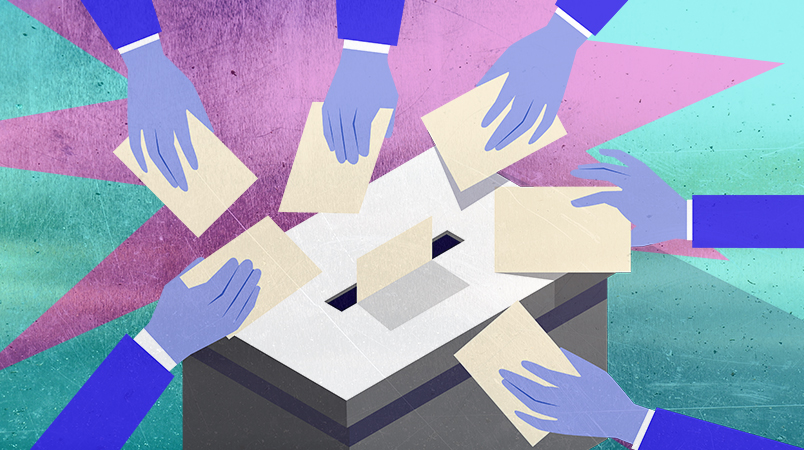One of the issues we’re going to cover in our Voting Rights and Democracy series is the issue of felon disenfranchisement. The Florida Phoenix recently published an article which reported that in mid-June an African-American, Erwin Jones, appeared before Governor Rick Scott’s cabinet to petition to have his voting rights restored. (The cabinet in this case sits as the Executive Clemency Board.) When Jones appeared before the Board, Florida’s Chief Financial Officer Jimmy Patronis pressed him on how many children he had and “how many different mothers to those children?”
Patronis pressed another petitioner about his church attendance. Each of these men had committed felonies and at least five years had passed since their imprisonment and parole had ended.
When I first mentioned this, a number of people noted that Florida’s system for restoring voting rights is basically a joke. That is clearly the case. The idea that top elected officials decide these questions on their own personal whim, mixing in various personal prejudices and absent any clear framework for how to judge these cases, is a joke. But really the idea that you lose your civil rights permanently for committing a felony is a joke in itself.
These laws are mostly rooted in post-Civil War drives to limit African-American voting. They continue to disenfranchise a substantial percentage of the state’s African-American voters. Approximately 21% of Florida’s voting age African-American population is disenfranchised. But even beyond these facts, for a country that prides itself on its democratic institutions the right to vote has surprisingly little affirmative standing in US law.
That may sound like a strange statement. As much as they are under threat, there are various constitutional, legal and case law protections barring the abridgment of voting rights for targeted groups, usually racial and ethnic minorities. But setting this aside, if you take discrimination against specific groups out of the equation, there’s still fairly thin affirmative standing for your right to vote and your right to vote to be counted. That general lack of grounding of course has major effects on efforts to protect the franchise for those targeted groups whose rights are under the greatest threat.
We take the apparatus of voter registration largely for granted. But what we know as voter registration stems largely from late 19th century reforms which were aimed to a significant degree at limiting voting, not just African-Americans but the new immigrant communities, often from Southern and Eastern Europe, which were then entering the country.
If I miss a registration deadline, I may temporarily lose my right to vote. If I fail to vote in successive elections, I may temporarily lose my right to vote. Then there’s the issue of voter ID which, as we know, disproportionately affects minorities and the poor.
Then there’s whether your vote counts. Set aside numbers of ‘spoiled’ votes or the various ways that cast votes may go uncounted. We have already seen that under the current system of apportionment and districting, the Democrats can get substantially more votes for the House than Republicans and still remain in the minority. Some of that is the increasing efficiency and aggressiveness of gerrymandering. But not all of it. Some is deeply rooted in our system of representation. It is very difficult to root out. Geographical concentration of voters has deep socio-economic roots. But its effect on voting outcomes is profound.
This is a scattershot tour of the horizon.
But they all unite around the central point that the affirmative right to vote and have your vote count and counted has surprisingly little standing in our current law.






